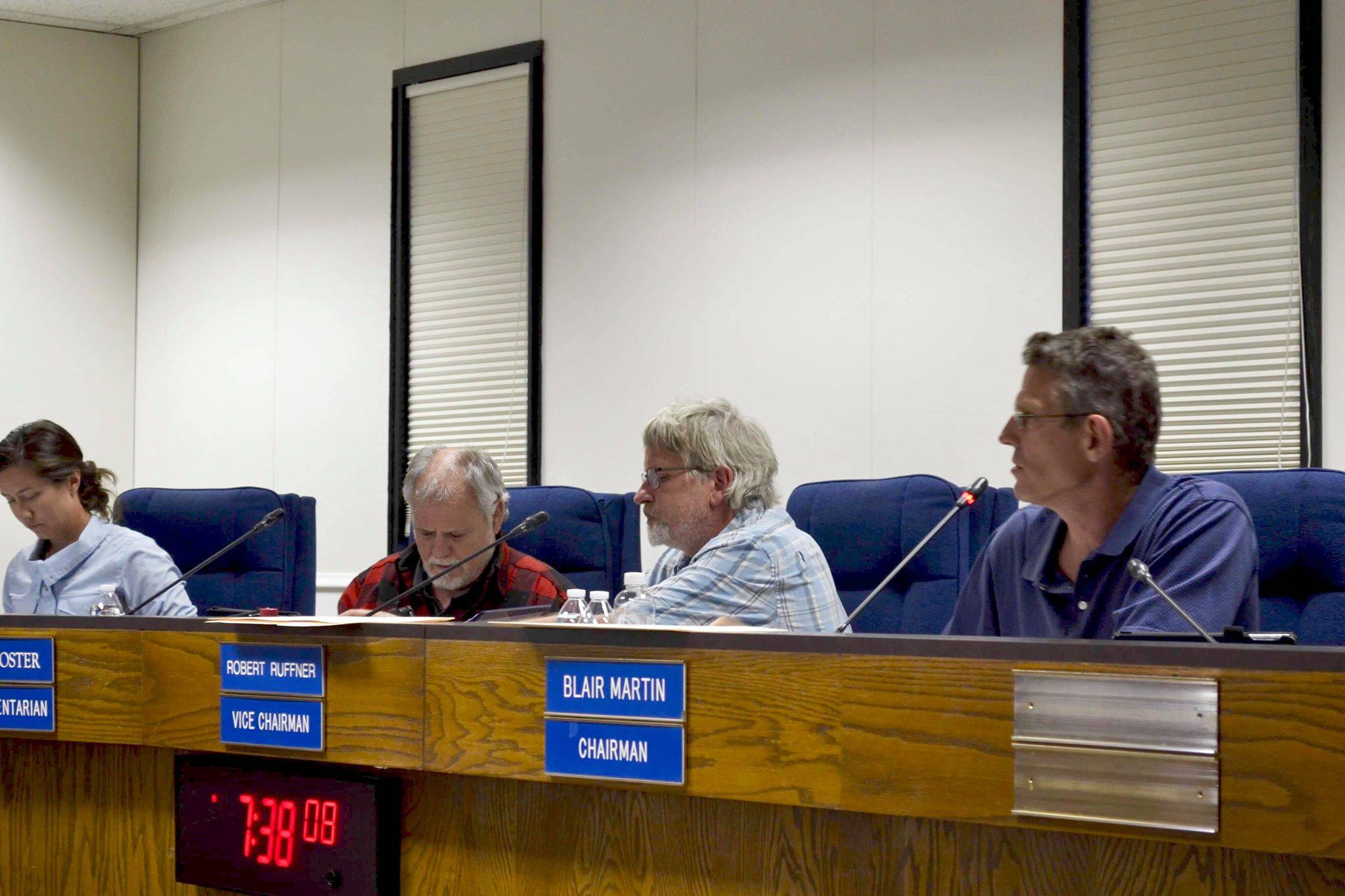The Kenai Peninsula Borough Assembly will consider code changes that would affect gravel pit operations and permitting at its Tuesday meeting.
Changes to material site code, including permits, applications, conditions and procedures, were introduced in an ordinance at the Nov. 5 borough assembly meeting.
The proposed ordinance highlights a number of changes, including more detailed definitions throughout the material site code, increasing groundwater testing, increasing the buffer from water bodies to 200 feet, decreasing the number of hours operators can process and crush rocks, new sound level conditions and a new white noise alarm requirement, among others.
Several of the proposed code changes were first explored in the borough’s Material Site Workgroup, which was established in 2018 to “engage in collaborative discussion involving the public and industry to make recommendations regarding the material site code,” according to the ordinance.
The proposed ordinance takes into account comments from the community expressing concerns about gravel pits, including dust, noise and aesthetics.
“The planning department received numerous complaints regarding unreclaimed parcels registered as non conforming prior existing material sites which have not been regulated by KPB,” the ordinance said. “Certain additional conditions placed on material site permits would facilitate a reduction in the negative secondary impacts of material sites, e.g. dust, noise, and unsightliness of material sites.”
There are hundreds of material sites, including gravel pits, across the peninsula, according to the ordinance.
At their Nov. 12 meeting, the Kenai Peninsula Borough Planning Commission reviewed the proposed ordinance and recommended it unanimously along with a handful of amendments.
A public hearing on the potential code changes will be heard at Tuesday’s assembly meeting at the borough assembly chambers in Soldotna.

